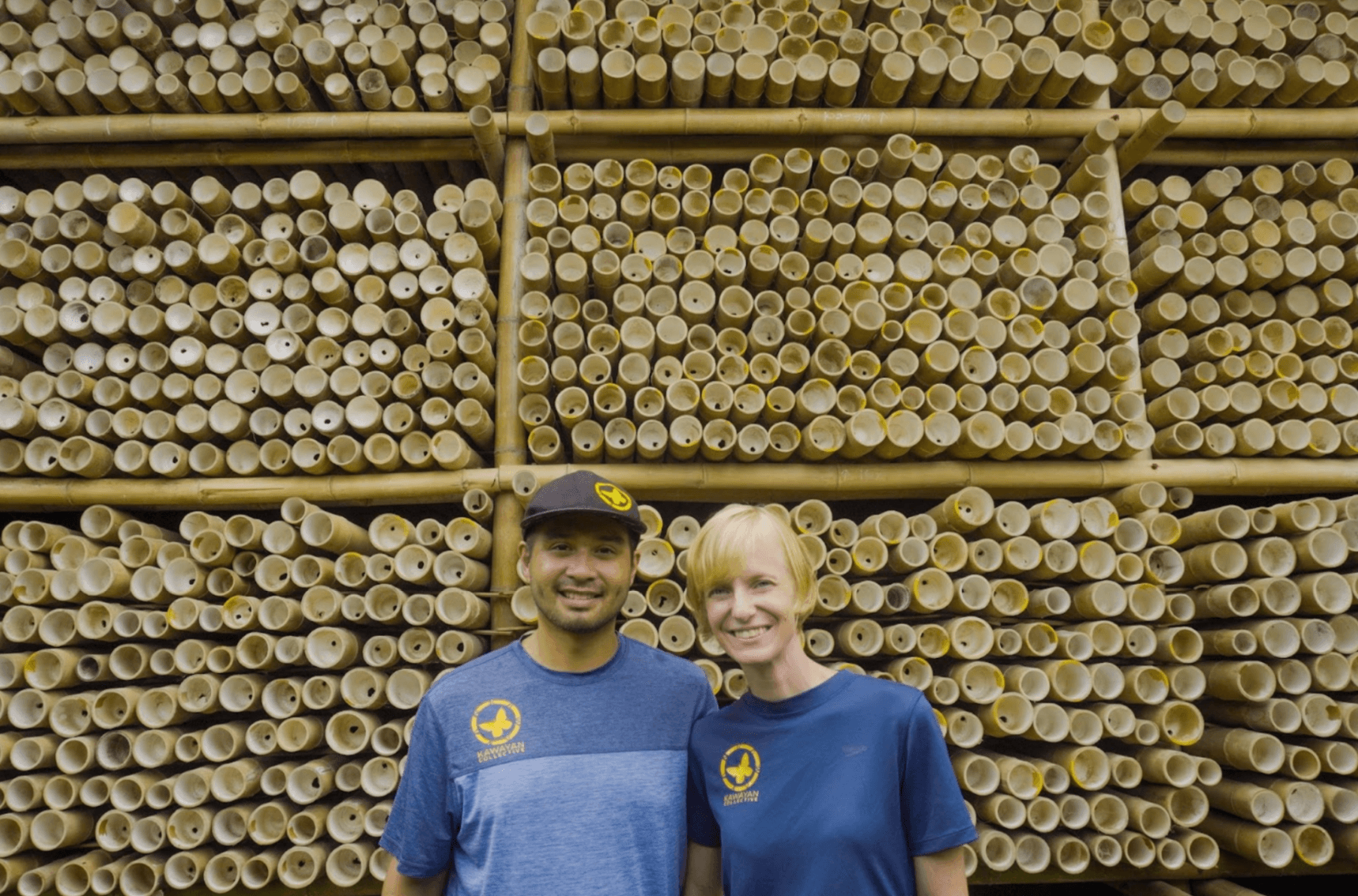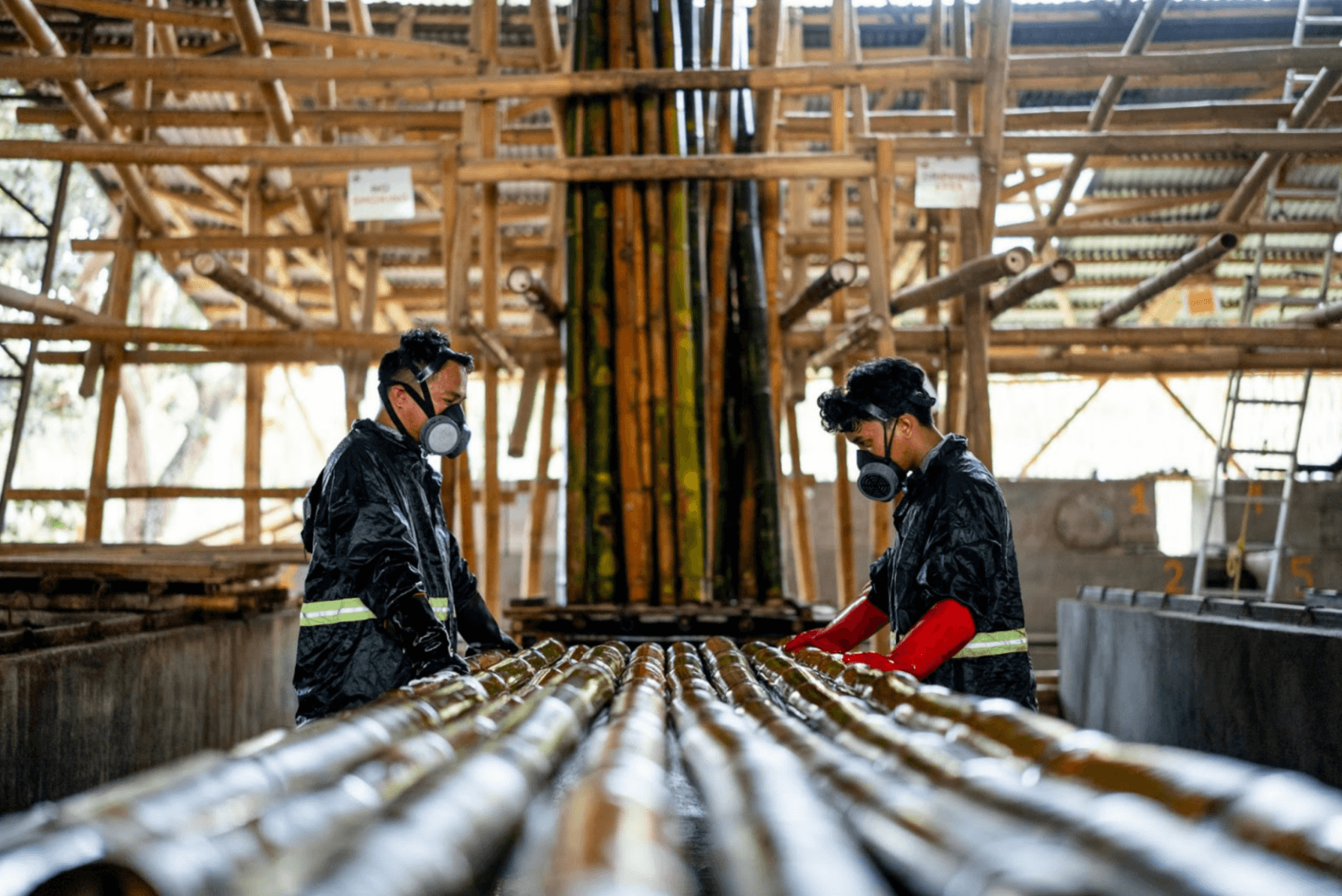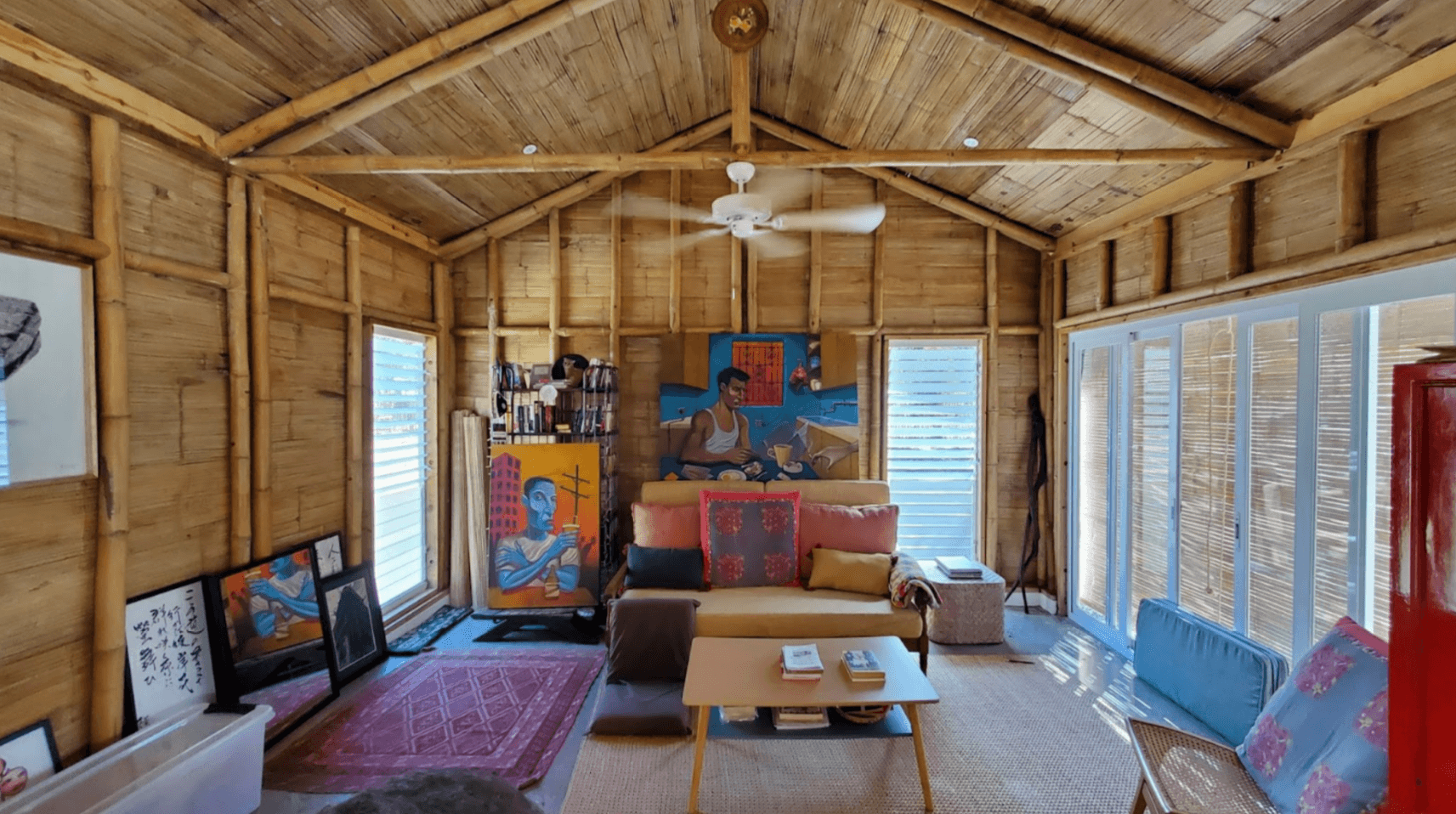Bamboo is the better builder
Kawayan Collective pushes bamboo use for sustainable construction
By Mat Richter
Building a sustainable housing business was once just a spark of idea for this couple. Yet, that faint but guiding light ignited their sleeping passion for the Earth’s tallest grass—an ambition they chased for years. Now, they awake to the dreams they built. Their secret? Passing the fire on to others.
Social entrepreneur Amy Villanueva and her husband, Arch. Ray Villanueva, started their bamboo journey 12 years ago when tasked to launch the country’s first design-build architecture program in Dumaguete City.

Working with bamboo was like love at first sight; the architect has never let go since. From simplicity to versatility in tropical design, the giant grass' qualities, ultimately cultural value, pushed the couple to establish the largest bamboo lumberyard in the Philippines, the Kawayan Collective.
Butterfly effect
The pioneers were introduced in 2018 to their launch partner Base Bahay Foundation, a national NGO pushing for affordable, sustainable, and disaster-resistant bamboo housing. It provided them with the technical know-how and contract to kickstart the business.
“It was just the spark we needed to turn our plans into reality,” she said.
Despite the challenges in proving their model could be replicated, their first operation in Negros Oriental succeeded—so much it bagged the President’s Award for Best Small Business in the country.
“We have proven to other franchisees that this is a model they want to invest in for their own business development,” she added.
Within six years, they’ve passed that burning passion on to others. The couple has grown from a team of seven to 40 people, their revenues have increased seven times, and they’ve processed over 95,000 bamboo poles.
“This is just the beginning. In the years since, our passion for bamboo has truly rooted itself in our family, our community, and beyond. It has been breathtaking to see the ‘butterfly effect’ of Kawayan Collective spread far beyond what Ray and I first dreamed possible,” the social entrepreneur expressed.
The Villanuevas credit all the collective’s successes to their local market in Negros Oriental, where the material is sustainably harvested within 20 kilometers of the facility. Raised and educated in Negros, their team is a mix of women and men—many equipped with advanced and local experience in bamboo craftsmanship.

Kawayan Collective’s customers are home and business owners, designers, engineers, non-profits, and LGUs—three-fourths of which are from Region 7.
“If it can be done in Negros Oriental, currently the second poorest province in the Philippines, there is no reason it cannot be done in other provinces with good bamboo supply and market access,” she stressed.
Bamboo is the future
The dynamic duo envisions the bamboo treatment becoming as common as corn and rice mills.
Kawayan Collective franchise will help make that possible, she told Manila Bulletin, by making it easier for rural businesses to link to a larger market, replicate the process, and produce construction-grade materials.
“Tarlac led the way, and our next franchise partner will be ready to open this September in Tanjay, Negros Oriental. These are small, but sustainable rural businesses that provide good jobs and durable building materials for local families and businesses,” she explained.
In two years, the collective aims to open 10 branches across the country.
“Treated bamboo has as much as 30 times the durability of untreated bamboo but has a higher upfront cost, so our treated bamboo products have one year against infestation. Should any of our products become infested, we take the responsibility to replace it,” she assured.
The collective’s rate of replacement of bamboo due to pest invasion is only less than 0.05 percent. In the last decade, thousands of homes with bamboo integration have withstood seasonal typhoons.
“Our three-week treatment process is rigorous and highly effective. We invite any prospective customers or skeptics into the facility to see for themselves,” she emphasized.

The social entrepreneur recognizes their product is still too expensive for many families; in turn, they continue to find ways to make it more affordable.
Apart from funded research and development for new equipment, training, and offerings to improve quality and cut costs, the company is building a new heated treatment tank. This could increase production fivefold while reducing treatment costs.
The business' fastest-growing product line is prefabricated building components like walls and roof purlins. Using these can complete buildings at least 20 percent faster than conventional construction.
These all help prove bamboo is growing to serve Filipino homes with better sustainability and affordability. But like any mission, there’s an obstacle—a bamboo bill still awaiting review.
"The next big hurdle is adding bamboo to the Philippines' structural code. Base Bahay is already drafting the code with the United Architects of the Philippines and the Association of Structural Engineers' technical working groups to establish bamboo as a disaster-resilient, climate-friendly building material,” she shared, hoping the country will embrace its potential to lead the ASEAN region in advancing bamboo construction.